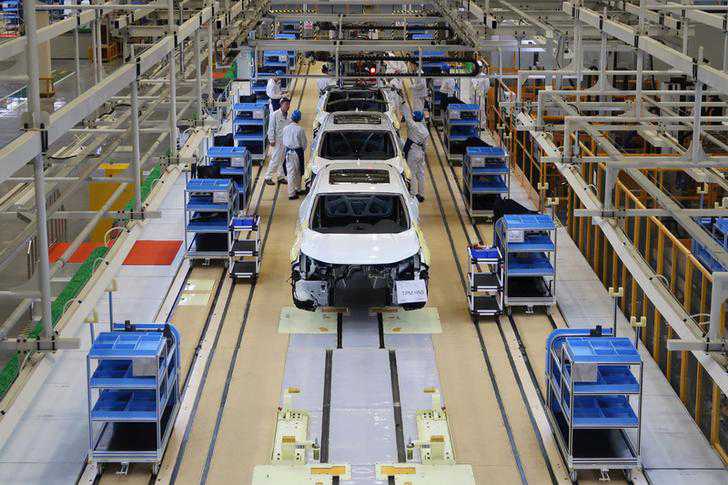Coronavirus uncertainties deal major blow to Japan's vehicle industry
08 March, 2020

The fallout from the coronavirus, which has caused some Japanese automakers to partially close plants, will probably prolong both disruption of parts procurement in China and an ongoing sales slump, potentially forcing them to improve production plans in coming months, industry analysts say.
The automakers are already experiencing delivery delays for a few models after taking much longer than initially likely to restart halted lines.
With virus fears driving new car buyers away from showrooms, sluggish revenue are giving the producers an added headache. And offered none of the automakers own yet considered the effects of the coronavirus on the earnings outlook as a result of liquid nature of the problem, shareholders can also be arranged to feel even more pain, too.
The virus chaos is proving a triple whammy for automakers whose sales have previously taken a hit lately from the consumption tax hike in October this past year and massive typhoons and consequent floods in fall.
"Unlike main earthquakes and typhoons, which are certainly devastating, the difficulty of dealing with this new coronavirus is that people have no idea when the epidemic will end, throwing development and sales ideas into disarray," explained Tatsuo Yoshida, senior car analyst at Bloomberg Cleverness, a research group.
"Many automakers, that have experienced disruptions in parts supply found in the aftermath of the March 2011 earthquake and tsunami disaster, have applied backup plans and various other steps since, but this coronavirus is a risk of different aspect," Yoshida said.
New vehicle sales on Japan, including trucks and buses, fell 10.3 percent in February from a year previous to 430,185 units, the fifth direct double-digit monthly fall, partly because the spread of the pneumonia-causing virus kept car clients from showrooms, recent data by industry bodies showed.
Koichi Sugimoto, senior analyst at Mitsubishi UFJ Morgan Stanley Securities Co, said that new car revenue in March could fall by around thirty percent, and ten percent in April only, as dealers are positioning back on marketing activities in response to extra customers putting off their purchase plans.
"Sales activities are far from back to normal and this situation could continue even after Can," Sugimoto said.
When info for January showed an 11.7 percent drop in product sales, there have been expectations within the Japan Automobile Dealers Association that the numbers would grab in February as Toyota Motor Corp and Honda Motor Co, the most notable two carmakers in Japan, start their remodeled compact models Yaris and Fit, respectively.
Delivery deadlines in Japan of most cars, including the new Fit, have been completely missed because of disruptions in parts imports from China, according to Kazuo Kato, chairman of the JADA.
"Demand was likely to rebound in January after falling because of the consumption tax hike, but it seems to have remained poor through February," said Koya Miyamae, senior economist at SMBC Nikko Securities Inc.
Miyamae said he expected new car sales to start rebounding in February, however the latest data suggests a good slow recovery.
In its quarterly earnings report in early on February, Toyota released an upbeat projection for the business year ending March, increasing its sales estimate for the entire year by 30,000 to 10.73 million vehicles. The outlook, however, didn't factor in the consequences of the coronavirus outbreak.
Nissan Electric motor Co has temporarily suspended outcome at its plants in Tochigi and Fukuoka prefectures, saying required parts could not come to be shipped out from a Chinese port.
Honda Motor will reduce vehicle output in two of its household plants in Saitama Prefecture for weekly roughly in March due to concerns about parts source from China, sources near the problem said Monday.
Honda has maintained it has the production levels by increasing end result of models for which the business had enough parts found in stock.
Suzuki Electric motor Co and Mazda Motor Corp also have faced difficulties found in procuring parts from China and also have delayed development of some models.
"The current position of disruptions in Chinese making and logistics due to the coronavirus is just the start," and situation will probably worsen, Mitsubishi UFJ Morgan Stanley's Sugimoto said, adding it really is too early to state when and how the crisis could be contained.
With the auto industry Japan's most significant manufacturing sector, making up 19.0 percent of total shipments by makers and employing 5.46 million people in the country, the government is anxious about the supply chain trouble but does not have any immediate remedy to offer.
"As the automobile industry is indeed multilayered with many suppliers, it is difficult to detect and resolve the bottlenecks, which are also different for every and every carmaker," stated Futoshi Kono, mind of the auto division in the Ministry of Market, Trade and Industry, carrying out a assembly of automakers, suppliers and the federal government.
"But you want to stay in close communication with Japanese auto (businesses) and their suppliers simply because the problem could suddenly turn for the worse," he said.
Source: japantoday.com
TAG(s):
